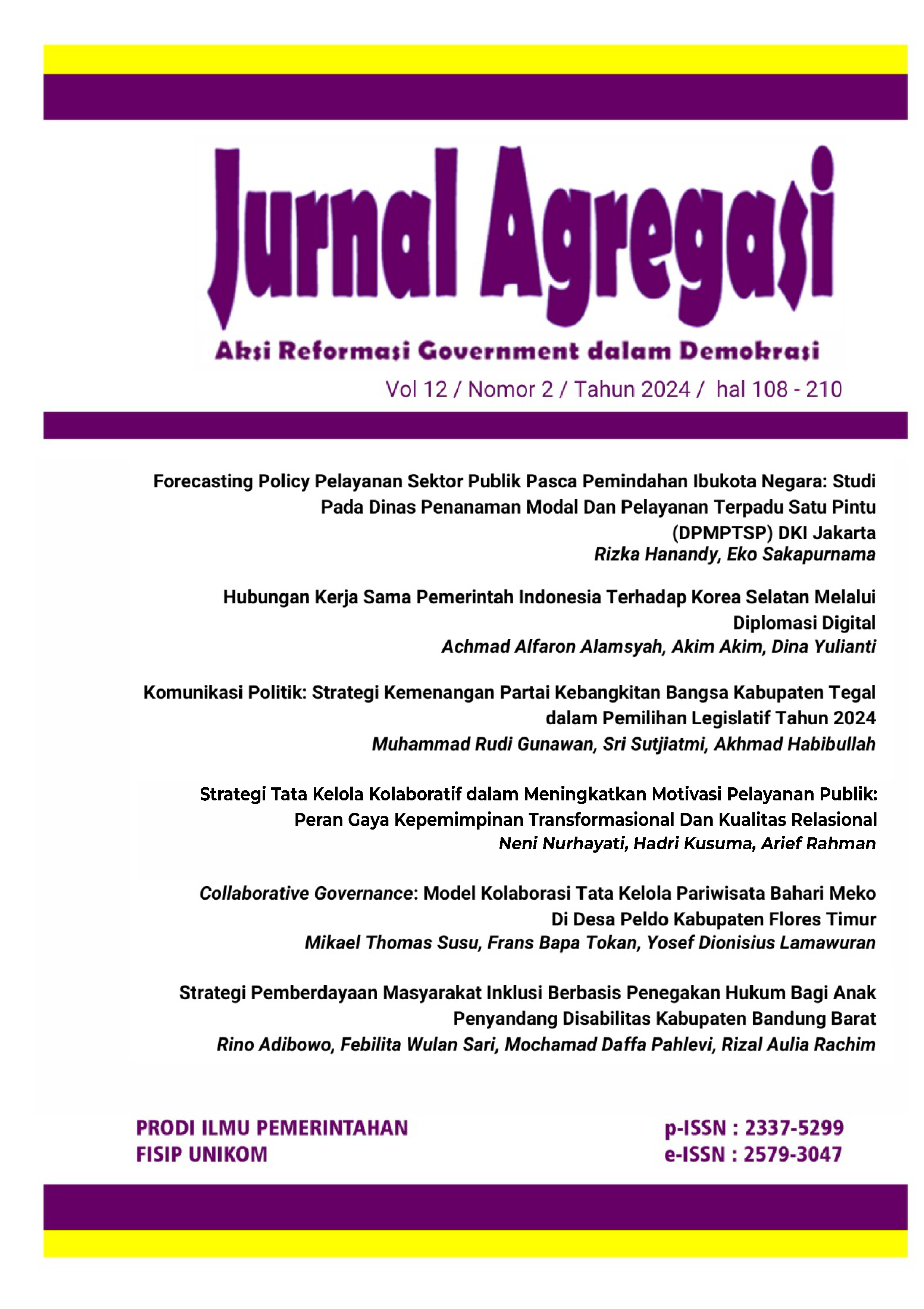Hubungan Kerja Sama Pemerintah Indonesia Terhadap Korea Selatan Melalui Diplomasi Digital
DOI:
https://doi.org/10.34010/agregasi.v12i2.12279Keywords:
Virtual Business Matching, Digital Diplomacy, Indonesia, South KoreaAbstract
Communication between countries is carried out by the government itself, and Indonesia in international cooperation communicates between countries, one of which is with South Korea. The current development of digitalization and the impact of the pandemic have made drastic developments in communication. Where initially communication was carried out face-to-face and then switched to using virtual meetings, one of which Indonesia did through Virtual Business Matching (VBM). VBM is a government effort in communicating between countries in terms of trade to increase its exports. So it is necessary to analyze how VBM can be used by the Indonesian government through the concept of digital diplomacy. This paper uses a descriptive-analytical approach with qualitative methods. The results obtained are that VBM can be a digital tool for Indonesian diplomacy in communicating with other countries in an effort to fulfill or pursue the country's interests in the international arena. The advantages of VBM can cut costs and time and effectively bring together both parties between Indonesia and South Korea.
Keywords: Virtual Business Matching, Digital diplomacy, Indonesia, South Korea
Downloads
Downloads
Published
Issue
Section
License
This work is licensed under :

Creative Commons Attribution-NonCommercial 4.0 International License








